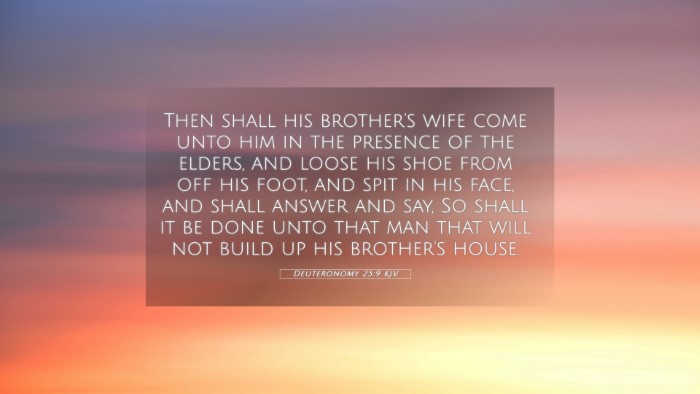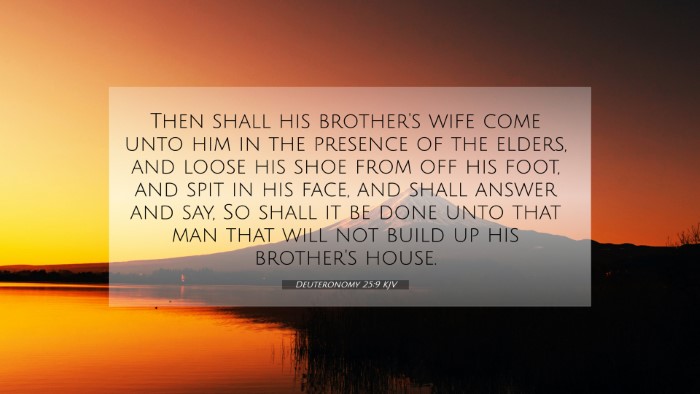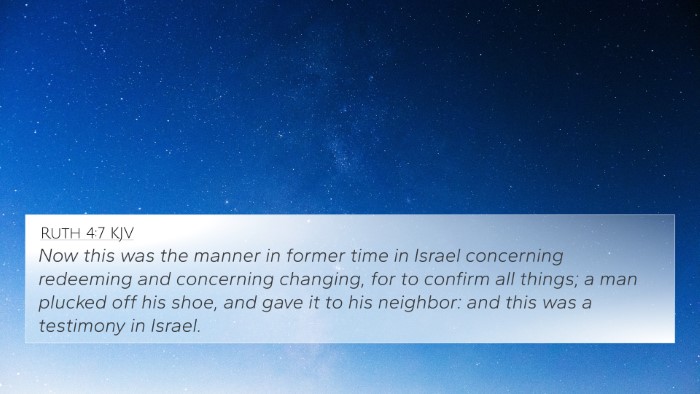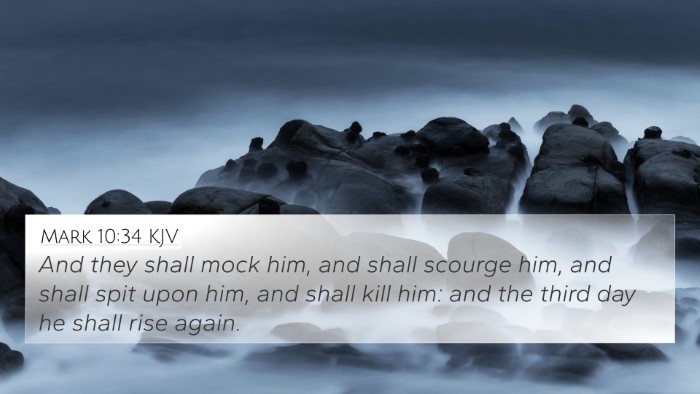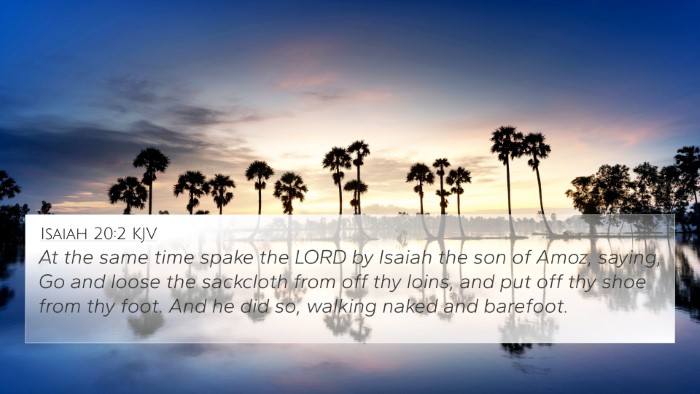Understanding Deuteronomy 25:9
Verse: "Then shall his brother’s wife come unto him in the presence of the elders, and loose his shoe from off his foot, and spit in his face, and shall answer and say, So shall it be done unto the man that will not build up his brother's house." (Deuteronomy 25:9)
Summary of Meaning
Deuteronomy 25:9 addresses the ancient practice of levirate marriage, emphasizing the responsibility of a brother to marry his deceased brother's widow to preserve the family line. The act of removing the shoe and spitting symbolizes dishonor for failing to fulfill this duty.
Commentary Insights
This verse is a vivid illustration of the societal and familial obligations placed upon individuals within the Israelite community, as discussed by various public domain commentators.
-
Matthew Henry:
Henry points out that this law not only served a practical purpose in safeguarding family heritage but also reinforced familial bonds. The public shaming involved highlights the seriousness of neglecting such responsibilities and the societal norms that guided behavior.
-
Albert Barnes:
Barnes elaborates on the significance of the act of loosing the shoe, indicating that it symbolizes a refusal to fulfill the legal requirement of levirate marriage. The accompanying actions serve as a public reminder of the importance of adhering to one's responsibilities.
-
Adam Clarke:
Clarke emphasizes the cultural context surrounding this law, explaining it as part of God’s design for family cohesion and the continuation of lineage. He notes the deeper theological implications of obedience and the honor restored through fulfilling marital duties.
Bible Cross-References
This verse connects with several other Biblical texts that provide context and further understanding of its implications:
- Genesis 38:8: The introduction of levirate marriage through the story of Judah and Tamar.
- Ruth 4:5: The resolution of the family obligation highlighted in the Book of Ruth.
- Matthew 22:24: Jesus references the concept of levirate marriage in discussions on resurrection.
- 1 Corinthians 15:29: Mentions baptism for the dead, reflecting similar themes of family obligations in spiritual contexts.
- Hebrews 7:14: Discusses the priesthood of Jesus in connection with His lineage, echoing the importance of family lines.
- Deuteronomy 25:7-10: The broader context of levirate marriage laws, reinforcing the obligation of a brother.
- Genesis 48:16: Reference to angels and family blessings that link to the significance of lineage.
- 1 Timothy 5:16: Advocates for caring for family, thereby reflecting the enduring nature of these familial obligations.
- Luke 20:28: Jesus again mentions the levirate marriage concept when questioned about resurrection and marital obligations.
- Exodus 6:16-20: Provides genealogical connections crucial in understanding Jewish law regarding family lines.
Thematic Connections
The themes from Deuteronomy 25:9 resonate throughout the Scriptures, highlighting the interconnectedness of Biblical laws and principles regarding family, duty, and honor.
- Family Heritage: The ongoing discussion around lineage and family responsibilities reflects God's design for community.
- Honor and Shame: The public shaming method indicates the expectations of societal conduct and integrity.
- Divine Law: God's laws regarding familial obligations are recurrently emphasized across both Testaments.
Conclusion
Deuteronomy 25:9 serves as a poignant reminder of God's intentions behind familial obligations and societal norms within the Israelite community. By exploring various commentaries and cross-references, one can appreciate the depth and continuity of these themes throughout Scripture. For those studying the Bible, the connections between verses offer invaluable insights into God's design and purpose for humanity's relationships.

